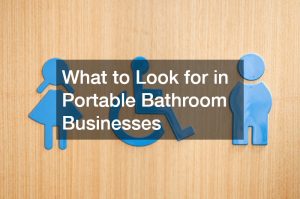Mindfulness is a hot topic these days. But what is mindfulness, and why should you care? Mindfulness is simply the practice of being present in the moment. When you are mindful, you are paying attention to your thoughts and feelings without judgement. This can be beneficial for your mental health, your physical health, and your relationships.
What Is Mindfulness?
Mindfulness is the quality or state of being aware of something. It’s about paying attention to the present moment, without judgment. Mindfulness is a form of mindfulness meditation in which you focus on your breath and become aware of your thoughts and feelings without judging them.
The Benefits of Mindfulness
There are many benefits associated with mindfulness. For one, mindfulness has been shown to reduce stress. A study published in the journal Health Psychology found that mindfulness meditation can help to reduce stress and anxiety. Additionally, mindfulness has been linked with other benefits such as improved sleep, increased focus, and decreased rumination.
Other benefits of mindfulness include:
Improved mental health
Improved mental health is one of the most well-known benefits of mindfulness. Studies have shown that mindfulness can help to reduce symptoms of anxiety and depression. A review of mindfulness-based interventions found that mindfulness can help to reduce symptoms of anxiety, depression, and stress.
Additionally, mindfulness has been linked with increased self-compassion and decreased rumination.
Improved physical health
Mindfulness has also been linked with a number of physical health benefits. One study found that mindfulness meditation can help to improve heart health. Additionally, mindfulness has been shown to help with chronic pain, inflammatory disorders, and gastrointestinal issues.
How to Practice Mindfulness
Now that you know what mindfulness is and some of the benefits associated with it, you may be wondering how to get started. Fortunately, mindfulness is something that anyone can practice.
Here are some tips for getting started with mindfulness:

Start with a short mindfulness exercise
There are many mindfulness exercises you can do, but it’s important to start small. A good way to start is by focusing on your breath for a few minutes. You can do this by sitting in a comfortable position and closing your eyes. Then, simply focus on your breath and count each inhale and exhale.
Try a mindfulness app
If you’re looking for a more structured mindfulness practice, there are many mindfulness apps available. These apps can offer guidance and support as you learn to be more mindful.
Find a mindfulness group
If you’d like to practice mindfulness with others, there are many mindfulness groups available. These groups can provide support and community as you learn to be more mindful.
Visit a serene and calming place
One of the best ways to practice mindfulness is to visit a serene and calming place. This can be anywhere from a park to a beach to a quiet room in your home. You can even pay for an overnight boat stay to disconnect from the hustle and bustle of your everyday life.
Go camping
Camping is a great way to unplug from technology and connect with nature. When you’re camping, you can practice mindfulness by focusing on the sounds of the outdoors, the smell of the campfire, and the feel of the ground beneath your feet.
Start your day with mindfulness
Mindfulness doesn’t have to be something you only do for a few minutes each day. You can also incorporate mindfulness into your everyday routine. One way to do this is by starting your day with mindfulness.
What Mindfulness Can Do For Your Emotions
Mindfulness can help you to become more aware of your emotions and learn how to deal with them in a healthy way. One study found that mindfulness can help people who tend to react emotionally to situations in a more balanced way.
How Mindfulness Can Help With Stress
Mindfulness can also help you to cope with stress in a healthy way. One study found that mindfulness meditation can help to reduce stress and anxiety. Additionally, mindfulness has been linked with other benefits such as improved sleep, increased focus, and decreased rumination.
If you’re looking to improve your mental and physical health, mindfulness is a great place to start. Mindfulness is something that anyone can practice, and there are many ways to get started. With mindfulness, you can learn to become more aware of your emotions and cope with stress healthily.
Who Can Practice Mindfulness?
Mindfulness is something that can be practiced by anyone. You don’t need any special equipment or training to practice mindfulness. All you need is the willingness to focus your attention on the present moment.
When Should You Practice Mindfulness?
Mindfulness can be practiced at any time and in any place. If you’re new to mindfulness, it may be helpful to set aside some time each day to practice. However, once you’re more familiar with mindfulness, you can start practicing in the middle of your everyday activities.
How Much Time Should You Spend on Mindfulness?
The amount of time you spend on mindfulness is up to you. If you’re just starting out, it may be helpful to start with a few minutes each day. As you become more familiar with mindfulness, you can gradually increase the amount of time you spend on mindfulness.
By practicing mindfulness, you can make your life more balanced and stress-free. If you’re looking to improve your mental and physical health, mindfulness is a great place to start.







